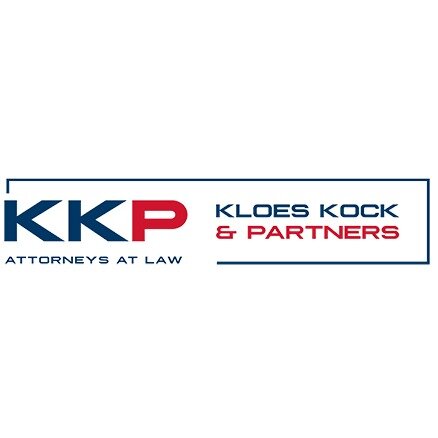Best Energy Regulatory Law Lawyers in Aruba
Share your needs with us, get contacted by law firms.
Free. Takes 2 min.
Or refine your search by selecting a city:
List of the best lawyers in Aruba
About Energy Regulatory Law in Aruba
Energy Regulatory Law in Aruba is a specialized area that governs the production, distribution, and consumption of energy within the country. This legal field involves the rules and standards that relate to electricity, gas, renewable energy, and utility services. In Aruba, energy is a critical sector given the island's unique needs and the growing focus on sustainable power sources. Regulatory frameworks are in place to oversee public and private entities, ensure reliable energy supply, protect consumer interests, and stimulate investment in renewables such as wind and solar power.
Why You May Need a Lawyer
Engaging a legal professional experienced in Energy Regulatory Law can be crucial in several situations. Common circumstances include disputes with energy providers, contract negotiations for large-scale or individual energy projects, navigating regulatory approvals for new developments, and ensuring compliance with governmental policies. Whether you are a business setting up renewable energy infrastructure, a property developer, or a consumer facing billing or supply issues, a lawyer can help you understand your rights, prepare necessary documentation, and represent your interests before regulatory authorities or in court.
Local Laws Overview
The energy sector in Aruba is governed by various laws and regulations aimed at ensuring a stable, fair, and sustainable energy market. Key legislation includes frameworks focusing on the generation and distribution of electricity, import and storage of fuels, and specific rules for renewable energy integration. Several public bodies, such as the Directie Energiezaken (Department of Energy Affairs) and utility companies like WEB Aruba NV, play roles in implementing policy and overseeing compliance. Licensing, tariffs, and environmental standards are areas of active regulation. Aruba’s commitment to transitioning towards renewable energy sources means that laws are regularly updated to reflect technological and policy changes.
Frequently Asked Questions
What is Energy Regulatory Law?
Energy Regulatory Law covers the rules and regulations governing the generation, distribution, and use of energy. This includes both fossil fuels and renewable sources, as well as the relationship between energy providers, the state, and consumers.
Who are the main regulators for energy in Aruba?
The primary regulators include the Directie Energiezaken (Department of Energy Affairs), and state-owned entities such as WEB Aruba NV (water and power), which are responsible for enforcing regulations and overseeing sector operations.
Can I generate my own renewable energy in Aruba?
Yes, individual and commercial users can generate their own power, mainly through solar and wind. There are specific regulations and approval processes related to grid connection and the amount of energy you can supply back to the grid.
What licenses are required for starting an energy business?
Any business involved in energy generation, distribution, or retailing may require operating licenses, environmental permits, and approvals from relevant government departments.
How are energy tariffs regulated?
Tariffs for electricity and water are regulated by the government to ensure fair pricing. Adjustments are periodically reviewed, considering production costs and international fuel prices.
What are my rights as an energy consumer?
Consumers are entitled to reliable energy supply, transparent billing, and the right to dispute charges. They are also protected under laws that establish standards for service provision and grievance processes.
What should I do if I have a dispute with an energy provider?
It is advisable to first raise the issue directly with the provider. If unresolved, you can escalate the matter to regulatory bodies or seek legal counsel for dispute resolution procedures.
Are there incentives for investing in renewable energy?
Yes, Aruba encourages renewable energy development through tax incentives, subsidies, and streamlined approval processes for certain projects.
How does Aruba ensure environmental protection in energy projects?
All energy projects are subject to environmental reviews and must comply with local standards aimed at minimizing impact, especially in sensitive areas such as coastal zones.
How can I keep updated with changes in energy laws?
Monitoring official publications from regulatory bodies and consulting with legal professionals specializing in energy law can help you stay informed about relevant changes or upcoming regulations.
Additional Resources
If you require further information or support, consider reaching out to the following resources:
- Directie Energiezaken (Department of Energy Affairs) - Main government body for energy policy and regulation
- WEB Aruba NV - Utility provider for water and energy, also a source for customer service and dispute resolution
- Aruban Bar Association - Can refer you to lawyers specializing in energy regulatory matters
- Chamber of Commerce Aruba - Provides guidance for businesses entering the energy sector
- Environmental agencies - For information on environmental permit requirements regarding energy projects
Next Steps
If you believe you need legal assistance regarding Energy Regulatory Law in Aruba, start by clearly identifying your issue or objective. Gather any relevant documents, such as contracts, correspondences, or bills. Consult the regulatory bodies or utility providers for clarification on rules or to file a preliminary complaint if necessary. Next, seek legal advice from a specialist familiar with Aruban energy law to understand your options and the legal pathways forward. A qualified lawyer will help you navigate any application process, compliance requirements, or dispute resolution mechanisms to safeguard your interests effectively.
Lawzana helps you find the best lawyers and law firms in Aruba through a curated and pre-screened list of qualified legal professionals. Our platform offers rankings and detailed profiles of attorneys and law firms, allowing you to compare based on practice areas, including Energy Regulatory Law, experience, and client feedback.
Each profile includes a description of the firm's areas of practice, client reviews, team members and partners, year of establishment, spoken languages, office locations, contact information, social media presence, and any published articles or resources. Most firms on our platform speak English and are experienced in both local and international legal matters.
Get a quote from top-rated law firms in Aruba — quickly, securely, and without unnecessary hassle.
Disclaimer:
The information provided on this page is for general informational purposes only and does not constitute legal advice. While we strive to ensure the accuracy and relevance of the content, legal information may change over time, and interpretations of the law can vary. You should always consult with a qualified legal professional for advice specific to your situation.
We disclaim all liability for actions taken or not taken based on the content of this page. If you believe any information is incorrect or outdated, please contact us, and we will review and update it where appropriate.
Browse energy regulatory law law firms by city in Aruba
Refine your search by selecting a city.











